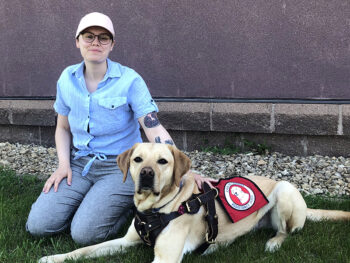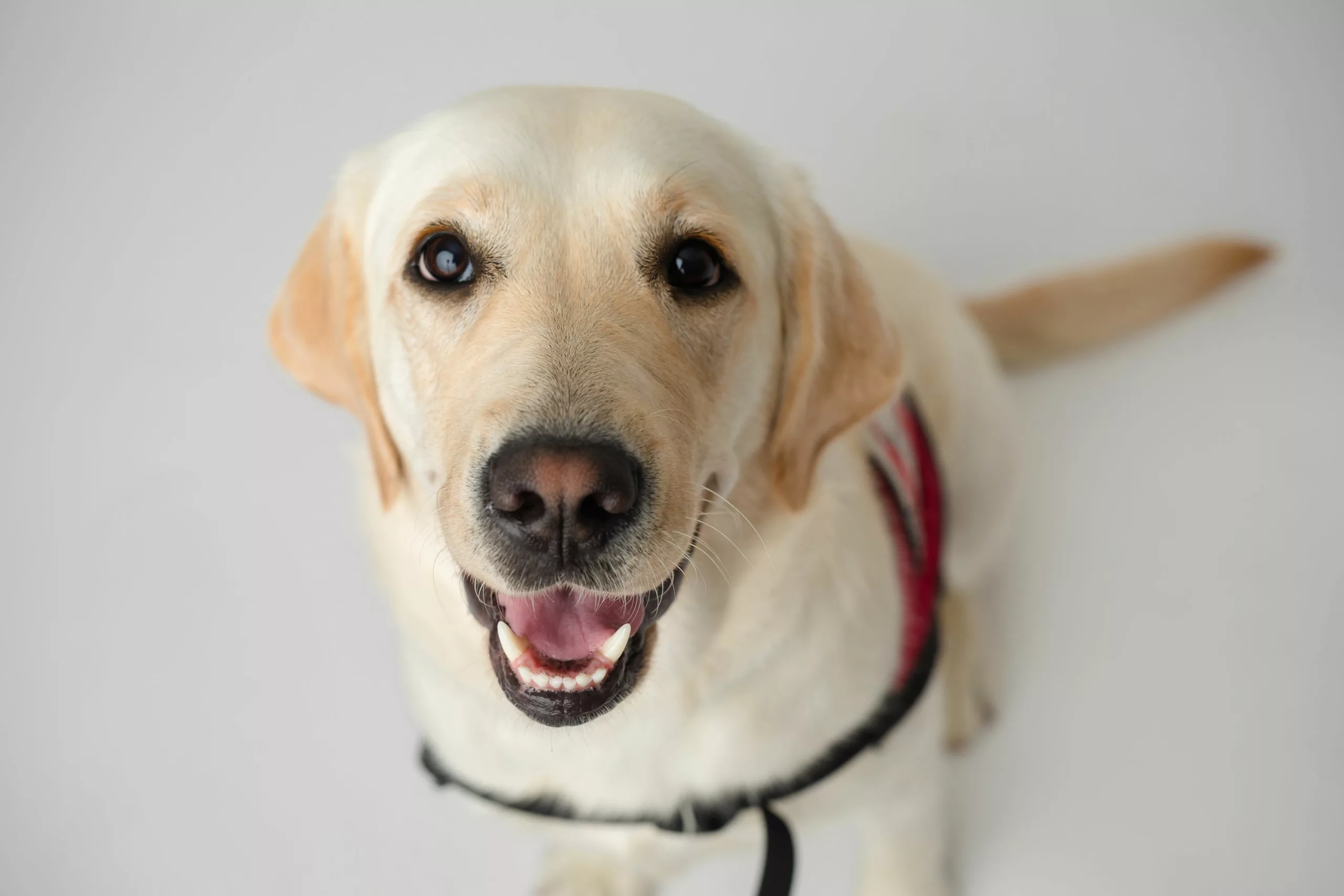In high school, Maya went from being able to work as a barista to just a few months later being unable to stay upright for a shift. Her ability to withstand activity has continued to diminish over the past five years, and she has spent that time looking for answers from many medical professionals. “I think anyone with a chronic or rare illness knows that half the battle is finding a doctor to figure out what’s wrong with you. I’ve had several diagnoses in my life, some of them fit and some of them have not,” says Maya. Some conditions she has are a migraine disorder and chronic fatigue syndrome, plus many other guesses that didn’t get support from a second opinion. Doctors have agreed that Maya has a neuromuscular disease that affects her mobility and causes muscle weakness, fatigue, drowsiness and chronic pain.
 A Team that Learns Together Grows Together
A Team that Learns Together Grows Together
She began considering her need for a service dog about two years ago, thinking how one could help to conserve her energy on a daily basis and found Can Do Canines. She soon met Uzi, a 2-year-old Labrador Retriever, and remembers the joy in his eyes as he entered the training room to meet her, excited to work and ready to bond. “He loves being helpful and interacting with me. If he decides I’m not asking for the help I need, he will offer it. It’s wonderful when I drop something without realizing it!” Little tasks added up quickly to drain Maya’s energy over the day. “When I have muscle fatigue, any movement takes a lot of me.” Also, hand tremors cause her to frequently drop small items. If a pen falls during class, it used to take extensive effort for Maya to get up, move around the desk, carefully pick up the pen, and return to her seat. Now, Uzi can easily grab the pen and return it in a matter of seconds, sparing Maya the onerous task.
On a regular basis, Uzi retrieves items from the floor, cleans up laundry to a basket, opens and closes her bedroom door, gets a bag of medications, tugs Maya’s clothing off when she is too dizzy to lean or her dexterity won’t cooperate. He also alerts a college roommate when Maya needs additional assistance, and stands still to act as a brace for her to lean on as a surface when she wants to get up from the ground.
Uzi wears a special counterbalance harness with a clipped-on handle that Maya holds when they walk. It's especially helpful on her dizzier days, or when she needs to turn around. Before Uzi, Maya relied on friends to keep her steady and moving. “When I walked across campus, I had to loop my arm in theirs to alleviate some of the exhausting work it is to walk 50 feet. I’d get in the grocery store by hanging on my roommate and prop myself on a cart.” Her friends say they felt they used to walk for two people; now they just act as a guide for Uzi and Maya to get to the destination.
Additionally, Maya occasionally has idiopathic episodes of an altered level of consciousness, when she has trouble interacting with the world around her. She loses track of where she is and doesn’t know who comes and goes from the room, awake but unresponsive. “They’re pretty terrifying for me. It feels very vulnerable and very isolating. When I have these spells, I’ll ask Uzi to snuggle and he’ll put his body on my legs. It feels a lot less scary to know you have this being with you and here to help.” The light pressure therapy is able to keep Maya feeling connected to reality, and it enables her to recover more easily.
Thrilled to Feel Her Age
Before meeting her match, Maya was concerned that the dog wouldn't really want to bond with her since they’ve had so many good homes, that they wouldn’t really want to replace those loving people. She worried that, “I would have a dog view me as their employer, and not like his family.” Uzi has proven many times already that there is nowhere else he’d rather be and no one else he’d rather be with. He enhances the independence and confidence that enables Maya to experience and embrace life more. “It’s a part-time job to keep up with able-bodied people, and it feels a lot more manageable now.”
Maya has incredible insight about what Uzi has changed for her. “One of the hardest parts about being young and chronically ill is that you don't feel your age very often with the limitations you have and barriers you encounter. I’m most grateful for the moments when I get to feel like a 20-year-old college student. That’s the best part of having him.” She continues, “I’m absolutely so grateful for this. Everyone’s hard work and donations are going to shape my life for the next 10 or more years. We see these beautifully trained dogs and think they just come out like this, but they don’t!” She also credits his prison handlers, who “went above and beyond in teaching him not just how to be a [service dog], but lots of fun tricks that help me connect with the fact that he’s just a dog that likes to have fun at the end of the day.”
Thank you to all those who made this partnership possible:
Great Start Home: Tom VonRuden
Puppy Raiser: Jackson Correctional Institution
Special Thanks: Wendy Jagt
Name-A-Puppy Donor: Britta Maddox, Stanley Correctional Institution
You: Thank you for your donations!

 Volunteer Spotlight: The Wahl Family
Volunteer Spotlight: The Wahl Family




